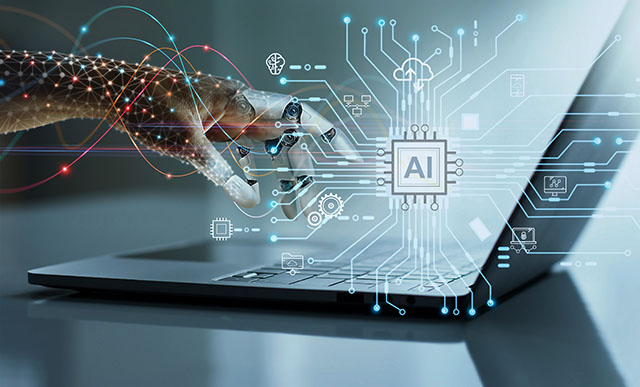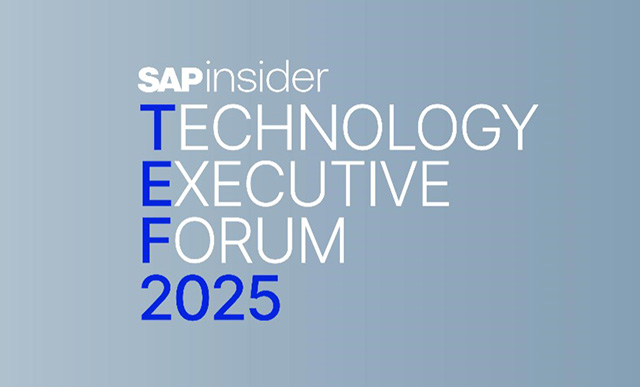Transforming the HR Experience with AI
Meet the Authors
Key Takeaways
While the industry has evolved significantly, moving from early, error-prone AI products to a stage where these technologies are now proven effective in specific use cases, the progression underscores the importance of embracing AI for its potential to streamline processes and boost the overall effectiveness especially of the HR functions.
Historically, HR has lagged in embracing technological advancements, often becoming mired in outdated processes that divert attention from their core mission: prioritizing people.
AI presents a transformative solution by automating tedious tasks and enhancing efficiency.
AI integration in the workplace signifies a shift towards improved human performance, where automation supports rather than substitutes human labor, streamlines routine tasks and enhances human intelligence, creativity, and decision-making abilities.
However, while the industry has evolved significantly, moving from early, error-prone AI products to a stage where these technologies are now proven effective in specific use cases, the progression underscores the importance of embracing AI for its potential to streamline processes and boost the overall effectiveness especially of the HR functions. In the realm of HR, artificial intelligence needs to be regarded as a powerful tool that enhances and supports jobs rather than something to fear. However, there is a need to understand its functional benefits and dispel outdated fears of job loss or harm, particularly around ethical and effective AI use in HR.
Historically, HR has lagged in embracing technological advancements, often becoming mired in outdated processes that divert attention from their core mission: prioritizing people. AI presents a transformative solution by automating tedious tasks and enhancing efficiency. For instance, AI can swiftly generate job descriptions, freeing HR professionals to focus on strategic, people-centered initiatives. Especially in today’s remote work environment, AI can emulate crowdsourcing by incorporating diverse viewpoints into content creation.
Explore related questions
“Automated workflows powered by AI can enhance HR productivity by efficiently managing employee interactions, tracking requests, and providing easy access to resources and information. AI can also help in reducing biases in hiring by anonymizing resumes, analyzing job descriptions for biased language, and ensuring diverse candidate pools and its predictive analytics can enable hiring teams to identify and correct bias patterns in historical data and standardize interview questions to minimize personal biases.” – Stephanie Lichtenstein, Solution Centre, Rizing – a Wipro Company
However, given the hesitation and uncertainty within HR about AI adoption, collaboration with other departments, such as security, can help in determining the optimal ways to utilize AI for each organization. This collaborative approach can ensure that AI is implemented effectively and securely, maximizing its benefits throughout the company.
Debunking Myths
While AI offers significant advantages in HR, its adoption comes with notable challenges, particularly in terms of the ethics, reliability, and transparency of the algorithms involved. Moreover, many organizations still view HR primarily as a cost center rather than a strategic asset.
“To foster greater AI adoption, it is essential for HR departments to gain a comprehensive understanding of the various AI technologies and their potential benefits. This knowledge will enable HR professionals to see AI as a tool that enhances their work rather than as a threat. It is equally important for HR teams to fully comprehend AI’s applications, ensuring they maintain control over its implementation and usage. AI is particularly adept at generating content and providing recommendations, but human oversight remains critical for validation and decision-making.” – Megan Marie Butler, Future of Work Strategist, Rizing a Wipro Company
HR needs to integrate AI into their processes to alleviate the workload without assuming the entire burden. Education is key: debunking fears, fostering open dialogue, and highlighting AI’s benefits will drive better user adoption. By leveraging AI effectively, HR can transform from a perceived cost center to a strategic partner in organizational success.
Today’s market offers increasingly customizable AI solutions, empowering HR departments to address their specific needs more effectively. Key trends include advancements in skills assessment, chatbots, and generative AI, which have evolved significantly from traditional conversational AI. – Stephanie Lichtenstein, Solution Centre, Rizing – a Wipro Company
Test and Trial
When discussing maturity in the context of AI adoption, it is essential to recognize that companies are at various stages on a maturity curve, similar to the trends observed in reporting and analytics. Organizations need to assess their current position on this curve and identify necessary steps to prepare for AI integration. This may involve investing in skills, establishing job baselines, and creating job descriptions and considering the external content fed into AI systems and how these systems handle personal information securely. For instance, in HR, AI can be programmed to remove personal details from resumes to ensure security and impartiality during recruitment. This reliability is crucial, and companies must prepare their data accordingly.
In the initial testing of ChatGPT, there was skepticism about its usefulness, particularly in HR, with concerns about bias and potential problems. The test involved creating various job descriptions and using other AI tools to analyze them for skills and personality traits. The results were surprising yet insightful, as ChatGPT accurately identified common skills but lacked any personality assessment. This highlighted the limitation of using AI-generated job descriptions and screening tools, which could match candidates to job descriptions but not necessarily to the organizational culture.
“The key point is the importance of strategic thinking and education in HR to ensure job descriptions reflect the actual skills needed and cultural fit, avoiding the pitfall of standardized practices that lead to a homogenous candidate pool. HR professionals need to be smarter than the machines, leveraging technology while maintaining a strategic approach to hiring.” Megan Marie Butler, Future of Work Strategist, Rizing a Wipro Company
AI Integration in SAP
SAP’s strategic approach to AI integration offers customers the flexibility to selectively implement AI in areas where they feel most comfortable, such as recruiting, while choosing to avoid its use in more sensitive areas like HR transactions. This selective implementation is a smart move, enabling organizations to leverage AI where it can provide the most benefit without overextending into areas where it may not yet be trusted. SAP’s integration of these capabilities has made them more accessible, marking a unique phase of technological maturity and benefit realization.
Traditionally, maximizing the full spectrum of SAP’s capabilities often required partnering with or purchasing various products, which led to substantial integration challenges.
“Today, the enhanced accessibility and seamless integration of SAP technologies represent a major achievement in the market’s evolution. SAP’s commitment to aligning its technological investments with market trends has made cutting-edge advancements rapidly accessible to organizations, facilitating quick adoption.” Stephanie Lichtenstein, Solution Centre, Rizing – a Wipro Company
Addressing critical challenges such as system reliability and availability, alongside increasing trust and knowledge accessibility, is crucial in navigating a market that can often appear complex and daunting.
However, continuous education on AI usage is vital. It is important not to settle for the initial output from AI but to persistently refine searches until satisfactory answers are achieved. Humans remain in control of AI and have the power to direct it to produce the desired results. This control and the ability to continually refine AI’s output ensure that AI serves as an effective and dynamic tool, rather than a static solution. By embracing these advancements and maintaining a proactive approach to AI integration, organizations can navigate the evolving skills market more effectively, driving both efficiency and innovation in their HR practices.






